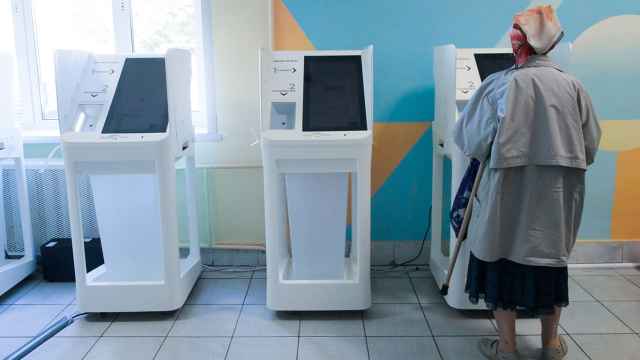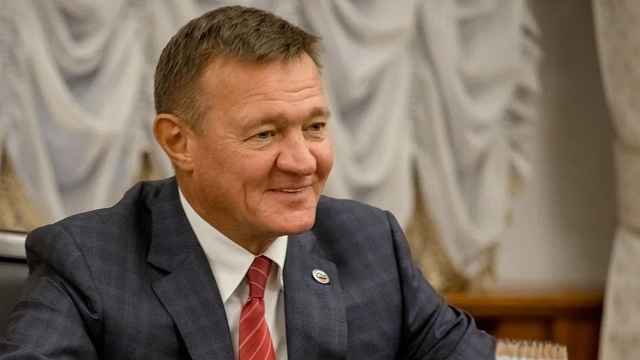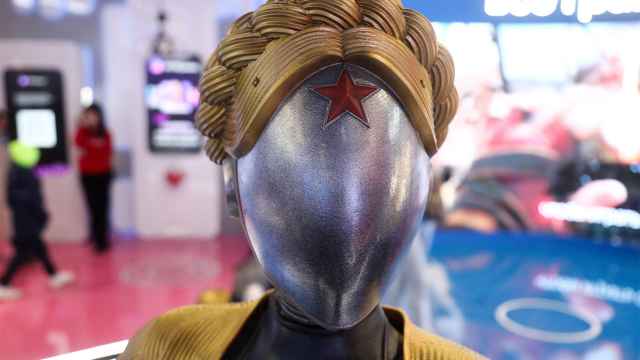The terrorist attack at Domodedovo Airport last week, likely organized by Islamists from the North Caucasus, claimed 36 lives. Less than a year ago, 40 people died in the March bombing of the Moscow metro, also carried out by Chechen Islamists.
Prior to the metro attack there hadn’t been a bombing in Moscow for nearly six years. In summer 2004, militants acting on orders of Chechen leader Shamil Basayev organized a series of terrorist attacks in several cities. The culmination of these attacks was the seizure of a school in the small Ossetian city of Beslan in September 2004. When Russian troops stormed the school, 333 hostages died, including 186 children.
Anna Politkovskaya, my courageous colleague from Novaya Gazeta, was supposed to be the reporter covering the Beslan hostage story. But she was poisoned by Russian special services on her way to the region. So I was sent instead.
Since the horror of the Beslan massacre, Russian authorities have insisted that they eradicated practically all terrorist threats.
They have made some apparent progress. For one, they’ve killed some prominent leaders of the Islamist underground movement in the region — Khattab, Abu-Dzeit, Basayev and many others. Yet in 2005, the country’s security forces also killed Aslan Maskhadov, the only legitimate leader of the Chechen separatists. Any chance of a peaceful resolution to the conflict in Chechnya may have been buried with him.
Several years ago, the Kremlin started pouring immense financial resources into the rebuilding of Chechnya, which was destroyed by the second Chechen war. Moscow also appointed Ramzan Kadyrov as president of the turbulent republic. Under his authority, it has become a totalitarian state within a state.
Kadyrov’s savage brutality and repression did result in short-term suppression of the militants’ activity between 2007 and 2008. It also permitted Prime Minister Vladimir Putin to announce to the world that the situation in Chechnya had stabilized. Meanwhile, insurgent attacks were becoming more frequent in the neighboring republics of the North Caucasus. Gradually, they came back to Chechnya as well. Today, the entire North Caucasus region is on fire, and suicide bombers play a leading role on this gruesome stage.
For each of the six years since Beslan, there have been weekly terrorist attacks in the North Caucasus. But when the Kremlin-controlled mass media discuss the North Caucasus, it is akin to the way people speak about a dead man — either good or nothing at all. The bombing at Domodedovo was a stark reminder to all in Moscow that the threat hasn’t gone away, despite the silence in the main media.
The problem is that Russian law enforcement and security agencies rely solely on extrajudicial reprisals and killings against the North Caucasus insurgency. Yes, they manage to kill key leaders. But these tactics also swell the terrorist ranks with new recruits.
For today’s Kremlin, the nameless Caucasus suicide bombers happen to be safer and more useful than a peaceful democratic opposition. Terrorists don’t demand the revival of democratic institutions or respect for human rights. The fear that every terrorist attack sows in Russian society only consolidates the power of the current regime.
The first thing Putin did after the tragedy in Beslan was to eliminate elections for regional governors, and in doing so he bolstered his own power. The first thing that President Dmitry Medvedev did after the explosion at Domodedovo was to blame the management of the best airport in the country for negligence.
At first glance, this seems absurd. But the statement could be sowing the seeds for the further spread of Putin’s power. Last year, Transportation Minister Igor Levitin announced the Kremlin’s intention to attract a single company that would be responsible for the management of all Moscow’s airports — Sheremetyevo, Vnukovo and Domodedovo. Don’t be surprised if a Putin crony gets the job.
Those whose relatives died in this tragedy are due to receive an unprecedented compensation: 2 million rubles ($67,000) per corpse. Still, in a month’s time, no one besides the bereaved families will remember the dead. Similarly, not once in the past nine months have the victims of the Moscow metro bombings been remembered. It will be the same this time — until the next terrorist attack, which already seems inevitable.
Yelena Milashina, an investigative journalist for Novaya Gazeta, is a recipient of Human Rights Watch’s 2010 Alison Des Forges award for extraordinary activism. This comment appeared in The Wall Street Journal.
A Message from The Moscow Times:
Dear readers,
We are facing unprecedented challenges. Russia's Prosecutor General's Office has designated The Moscow Times as an "undesirable" organization, criminalizing our work and putting our staff at risk of prosecution. This follows our earlier unjust labeling as a "foreign agent."
These actions are direct attempts to silence independent journalism in Russia. The authorities claim our work "discredits the decisions of the Russian leadership." We see things differently: we strive to provide accurate, unbiased reporting on Russia.
We, the journalists of The Moscow Times, refuse to be silenced. But to continue our work, we need your help.
Your support, no matter how small, makes a world of difference. If you can, please support us monthly starting from just $2. It's quick to set up, and every contribution makes a significant impact.
By supporting The Moscow Times, you're defending open, independent journalism in the face of repression. Thank you for standing with us.
Remind me later.





